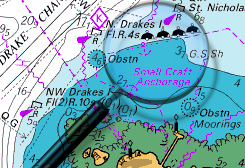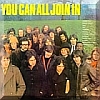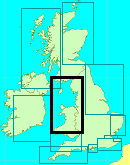You are viewing the expanded version of this Harbour,
for faster browsing
use the regular version here
Whitehaven Harbour
Courtesy Flag
Flag, Red EnsignWaypoint
Safe Offing, in 6m+ NW of Entrance 54:33'.4 N 003:36'.3 WCharts
Admiralty 2013Rules & Regulations
8 Knts in outer Harbour, Slower with No Wash in Inner HarboursHazards
Outer Harbour Dries. Channel to sea lock dries at +1 metre (2010) (See 'Local Knowledge' in 'Approach' section for channel location). Access HW +/- 4 Hrs at springs, more at neaps.Tidal Data Times & Range
HW = Dover +0020 MHWS 8.0m, MHWN 6.3m, MLWN 2.4m, MLWS 1.0m (links)This site is designed for slower, roaming broadband connections, like you would get at sea, so it needs JavaScript enabled to expand the text.
General Description
Contacts
Whitehaven Marina/harbour tel 01946 692435 VHF #12 (c/s Whitehaven Marina)
Whitehaven Lock Keeper tel 01946 694672 VHF #12 (c/s Whitehaven Sail Lock)
Whitehaven, believe it or not was once of more commercial importance than Liverpool or Bristol.
The large harbour was developed during the 17th century, mainly in connection with the export of coal mined locally.
The harbour has the distinction of being the only place in England to actually be attacked by Americans. John Paul Jones raided the port of Whitehaven on 23rd April 1778, during the American War of Independence. Three of the original cannons used to repel the attack can be seen on the West Strand complete with bronze sculpture of a sailor 'spiking' the touch hole.
Nowadays the harbour consists of a large outer drying harbour, and then access is via a sealock to an equally large area of enclosed and totally sheltered water. The Marina is now managed and operated by Marina Projects of Gosport and offers all the normal facilities for the visiting yachtsman or motorboater. The detached pontoons in the South Harbour have being replaced by finger pontoons along the West Strand (opposite the heritage Centre on the Admiralty Chart) and Old Quay wall so from mid July 2013 a visitor may well be directed there. (for a marina plan see the link in our "Berthing" section).
The maximum size through the lock is 30 m, although when open for free flow much larger vessels can pass through. Large vessels are accommodated on the quayside, and pleasure craft up to 15 m can use the Marina pontoons.
The Marina was partly funded with EU money, and together with a couple of other Harbourside projects has caused a bit of a rejuvenation in the area.
Approach and entry from sea is straight forwards, with no off-lying dangers. Strong onshore winds against the ebb tide could cause problems, but entry can be made in most conditions. Passing through the sealock is generally possible 4 hours either side of local high water.
Once within, all normal boat facilities can be found and the town is on the doorstep for provisioning and shops etc.
All in all Whitehaven would be a useful stop if on passage. It doesn't involve tricky pilotage up strongly tidal rivers combined with extremely limited windows of access...
It is of importance to note that this is a destination for the Three Peaks Race in mid July so there may not be much room for visitors not involved in that
https://www.threepeaksyachtrace.co.uk/
Approach
Whitehaven Harbour lies about 2.5 miles to the north of the conspicuous St Bees Head.
It's lighthouse is a white round Tower (Fl(2)20s). Various tall chimneys and towers are located to the south of the harbour and are conspicuous. Their location can be seen on the charts provided.
The prevailing wind in this area is WSW.
The flood tide flows NNE past the harbour entrance, and allowance needs to be made in the approach if entering before high water. The ebb tide flows SSW near the harbour.
The outer harbour dries and it is not possible to make your entry around low water. Generally speaking four hours either side of high water will cover most normal draft craft, if in doubt check with the authorities on VHF. It is possible to anchor off the harbour in settled conditions while waiting for a lock in.
Further Pilotage Directions...
There are shallows radiating out into the approach from the West Pier head (see charts), therefore when entering the harbour keep close towards the North Pier Head while lining up for the Sealock. If entering on the flood tide watch out for the easterly set of the tide.
Once within the outer harbour you may experience a mild anticlockwise tidal circulation.
Before entry it is necessary to call Whitehaven Lock Keeper on VHF channel 12 for permission to enter the Sealock. Vessels are not allowed to enter the lock, even when it is open for free flow, without obtaining permission. Two-way traffic through the lock is never allowed. The lock is 30 m long and thus able to accommodate most pleasure craft .Traffic signals are displayed as follows:
Traffic Signals: Tubular metal post 10 meters NE of control tower depicting either:-
3 F G (vertical) "Vessel may enter Sealock"
3 F R (vertical) "Vessel may not enter Sealock/Sealock closed".
3 Fl R (vertical) "Emergency - divert from Sealock"
Once in the lock there are pontoons either side to secure to.
For a night approach, which is quite feasible, the following lights will be of assistance, just watch the cross set in the close approach:
St Bees Head Fl (2) W 20sec 21 miles. White round tower with outbuildings 102 meters.
South Beach Outfall beacon Fl G 2.5 sec
West Pier Head: Fl G 5sec 8 miles. White round lighthouse 16 meters.
North Pier Head: Fl.R.5sec 8m10c miles White round truncated lighthouse 8 meters.
Sealock Approach Structure End: 2 F G (vertical) 2 miles. Mast 8 metres.
Sealock South Entrance Knuckle: 2 F G (vertical) 2 miles. Mast 8 meters.
Sealock North Entrance Knuckle: 2 F R (vertical) 2 miles. Mast 8 meters.
Local Knowledge:
At low water, the locals approach from the north west as usual, then aim to keep the prominent mast (see photo) and the stone watchtower (with flagstaff) in line about 1/3 of the way across between the two entrance lighthouses. These features can also be seen on the marina chart shown in the berthing section(It's floodlit at night, so it works then too). They keep aiming at the mast as they pass through the entrance, keeping well to port to avoid the rocky spit. After passing the short stubby lighthouse to port, they then begin a long lazy curve to port, until they are aiming directly at the sealock gates, but they do not line up on the axis of the lock until they are passing the lock approach structure to starboard. Using this method it's possible to get in a bit earlier on the tide, but strangers are still advised to check with Whitehaven Harbour on VHF channel 12 before attempting entry in these conditions. The photos make these instructions clear.
Berthing, Mooring & Anchoring
They have been busy here since we last wrote and you would be advised
....... to have a look at the link below (opens in a new tab - or you can right click and open in a new window) to see the new layout.
http://whitehavenmarina.co.uk/about/marina-plan.html
There are now pontoons in three areas of the harbour which gives them a total of 285 fully serviced berths and they still have alongside berths for larger craft.
What used to be the North harbour is now the Queens Marina, The Inner Harbour is the Lowther Marina (which is dead ahead as you clear the lock) and the South Harbour has become the West Strand Marina. A berth will cost you £2.84 per m per night (2022) with electricity charged for by top-up card.
The Lock Keeper or Marina Office will allocate a berth on entry. Ideally you want a berth in Lowther Marina as you are closer to the marina amenities building. The pontoons marked "V" on their marina plan are not dedicated to visitors and they will put you anywhere suitable for your boat. Permanent berth holders in the West Strand Marina and the Custom House Harbour pay less because of their distance from the facilities. Visitors do not benefit from this distinction!
A link to their very useful website is given below
Facilities
Water and electricity are available at the pontoons with electricity paid for by top up card.
Toilets and showers and laundry are available ashore, with access for visitors via pin number, open 24 hours a day. Holding tank pumpouts can be arranged, and arrangements can also be made to dispose of waste oil, batteries, and even out of date flares. This service is free.
Security is handled by CCTV monitored at the Sealock Office.
Diesel fuel is available alongside adjacent to the Marina. Petrol in cans from a local station - and joy, oh joy you can actually see that petrol station from the marina!!
Interestingly, it is possible to dry your boat out between tides for scrubbing etc. In the outer harbour the beach between the Old New Quay and Old Quay is firm sand with a gentle incline. There are other areas in the outer harbour that are patently unsuitable for this purpose.. Best check with the authorities.
A 45 tonne travel lift is located here and is available for residents and non-residents, with charges being based on the time in use. Hardstanding is available ashore. It is possible to get your boat lifted and dropped back in for around £100, with one hour in the slings and a pressure washer included... with you doing the dirty work. Sounds like good value to me.
There is now a Chandlery on site. Both Calor Gas and Camping Gaz refills are obtainable.
For trailer sailers there is an excellent slipway available in the non tidal harbour, with charges of £10 in and out. However to get to sea you need to pass through the Sealock, and to do this you will need a VHF radio onboard.
For other marine services, check the directory.
Provisioning in the town should be no problem with a Morrison's, Tesco's, Netto and Iceland. Whitehaven holds a twice weekly market on Thursdays and Saturdays. In addition there are plenty of traditional shops in the town and a large antiquarian bookshop, which is quite well-known. Lowther Street is a particularly interesting street.
Transport wise Whitehaven has two railway stations, Whitehaven (Bransty) and Corkickle, both on the Cumbrian Coast Line, which runs from Carlisle (for main line connections) to Barrow-in-Furness.
History
Although there had been a Roman fort at Parton, about 2 km to the north, Whitehaven was largely the creation of the Lowther family in the 17th century. It grew into a major coal mining town during the 18th and 19th centuries and also became a substantial commercial port on the back of this trade.
The town's fortunes as a port waned rapidly when ports with much larger shipping capacity, such as Bristol and Liverpool, began to take over its main trade. Its peak of prosperity was in the 19th century when West Cumbria experienced a brief boom because haematite found locally was one of the few iron ores that could be used to produce steel by the original Bessemer process. Improvements to the Bessemer process and the development of the open hearth process removed this advantage. As with most mining communities the inter-war depression was severe; this was exacerbated for West Cumbria by Irish independence which suddenly placed tariff barriers on the principal export market.
The Harbour has seen much renovation due to Millennium developments, A picture of the Harbour was used on the front page of the Tate Modern's promotional material for an exhibition of Millennium Projects in 2003. The Harbour rejuvenation has cost an estimated £11.3 million and has enabled 100 more moorings within the marina. Further investment of an additional £5.5 million has seen the development of a 40m high crows nest and a wave light feature that changes colour dependant upon the tide, plus the Rum Story on Lowther Street, voted Cumbria Tourism's small visitor attraction of the year 2007. In June 2008 The Queen visited Whitehaven as part of the 300th Anniversary Celebrations. The Queen and Prince Philip then officially opened the refurbished Beacon, a museum set on the Harbour. 10,000 people attended the event.
Whitehaven also plays host to a maritime festival which started in 1999 and is held every two years (although building development in the harbour area is making it difficult to find space to hold the festival, and its future is in doubt).
The festival includes tall ships, air displays which include the Red Arrows, and various modern and old planes, street entertainment, and firework displays.
At the 2003, 2005 and 2007 Festivals the local Sea Cadets were very much in evidence, conducting the traditional Evening Colours ceremony each evening aboard one of the visiting tall ships, and also taking part in the Festival's official closing ceremony during the late Sunday afternoon each year.
The 2005 festival also marked the 60th Anniversary of the end of the Second World War in which Whitehaven had been designated Cumbria’s Official commemoration celebration.
Up to 1,000 veterans and ex-service personnel took part in the parade from the towns Castle Park to the harbour side, led by members of three military bands. Services were held on the harbour side and aircraft from the Royal Airforce provided a tribute display above the harbour.
The text on this HISTORY page is covered by the following licence
http://en.wikipedia.org/wiki/Wikipedia:Text_of_the_GNU_Free_Documentation_License
Eating, Drinking & Entertainment
Right on top of the harbour you will find The Beacon Heritage Centre. It's always of great interest to visitors, containing various displays and exhibitions concerning the town's history. It also houses a weather station. This centre also features some of the notable people who have lived in the town. One of these was the grandmother of George Washington, Mildred Warner Gale, who lived in the town and is buried in St Nicholas’s Church.
When you've finished with the historical stuff you will find all the attractions of the town right on your doorstep, including a good selection of pubs, cafes and restaurants... including an Indian for those with spicy tastes. Check the links below for some more ideas:
Pubs:
http://www.beerintheevening.com/pubs/results.shtml/el/Whitehaven%3BCumbria/
Restaurants:
Restaurants & Places to Eat in Whitehaven 2022 - Tripadvisor
Links
|
Your Ratings & Comments
The locals used the visit as a good excuse for a 'mini-festival' on the quayside. Although the resident passengers headed inland for a whistle-stop tour of the lakes on the Saturday, the tenders were busy between ship and town on the Sunday too.
Whitehaven doesn't really market itself as a major tourist destination...more of a convenient base and supplies stopover, but the passengers heading back to the ship seemed happy enough, so hopefully there may be other welcome visits from other liners in the future.
Chris R









